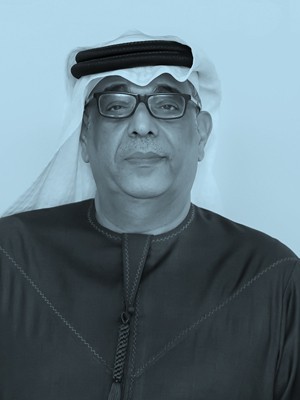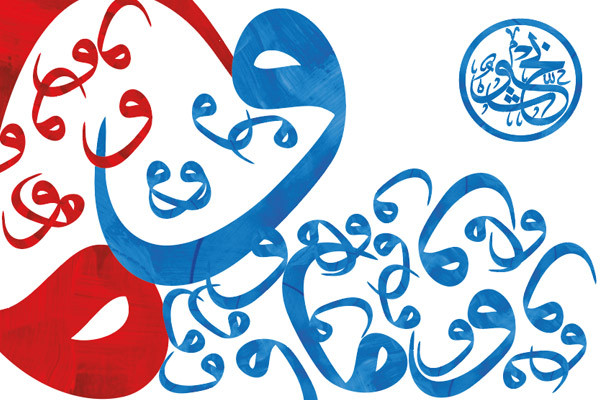Commercial Sector has to take responsibility of degradation of Arabic Language
Can the misuse of the language including its words, and grammar rules in publicity and notoriety be considered as a legal offense of some kind or misdemeanor?

- by Mohamed Ahmed Yusf Al Obaidly ,
- Thursday, 7th September, 2017
Theoretically, no one would agree to consider this more than an error requiring correction and perhaps this calls for nothing due to being a normal result. However, would the issue be changed if it was regarded within the frame of the current degradation of the Arabic Language among the new generations of the Arab and especially, here, in the Gulf region?
In fact, the problems and phenomena cannot be actually understood unless they are placed in a context since it is the factor which will point out the nature of the "problem/phenomenon", its gravity degree, actual impacts, and its potential outcomes or scenarios for its development or collapse. With such phenomenon of Arab language degradation, there are several factors including the impact of the commercial sector in Gulf countries.
In spite of the truth of attributing such degradation of Arabic to factors and reasons relevant to others (foreigners), the loss of interest, by the Arabs themselves, in their language is the critical factor which accelerated the paths of degradation in many ways. Since such paths began in the middle of the twentieth century, the current degradation is no longer limited to the new generations of the Arabs; it caught the media and the official organs.
In accordance with such measurement, the status of the Arabic language can be viewed by measuring the level of degradation which seized it for almost two decades. In other words, in spite of the truth of attributing such degradation of Arabic to factors and reasons relevant to others (Foreigners), the loss of interest, by the Arabs themselves, in their language is the critical factor which accelerated the paths of degradation in many ways. Thus, the current degradation, as viewed, is no longer limited to the new generations of the Arabs; it caught the official organs, media, and others to the extent that the Arabic language seems alienated among its speakers.
Furthermore, such degradation has been started when it is aired that it does not follow the modern era and does not absorb the rapid vocabulary of the scientific development of the twentieth century. Unfortunately, such talks are widely declared by a large segment of educated university Arab graduates without being distracted by the fact that the English language, which was and still dominating the world, did not include the scientific vocabulary that emerged in the 20th century.
In fact, there is no other language that overwhelms ready-made scientific vocabulary but rather all the scientific terminologies are derived whether from its function name or method of work; languages, therefore, develop, degrade, and collapse according to the usage of their peoples or rather their feelings towards them. In other words, languages are like living organisms requiring multilateral care and attention in order to be developed. As a result, as far as the people of this language pay attention to its use, it will be developed.
Nevertheless, such a popular belief on the Arabic language was being persistently and tirelessly re-produced in no small measure of lack of sight. This has been contributed to strengthen the feeling that Arabic belongs to the past while present and future are attached to foreign languages especially English. While no people gave up its pride in language, the Arabs seemed to be the only ones who are connected in a love-hatred relationship with their language. This became evident in the Gulf States since the oil boom in at least 1980s. As long as the living conditions are improved for the majority there, the educational indications have been changed for them accompanied by the increase of the foreign private language schools. This is reflected in the new prevailed values for the middle and rich classes in the community connecting the social status to the foreign education; such issue has contributed to one of the main symptoms of Arabic language degradationn in varying degrees to extent of renouncing its usage.
Is language a cultural or economic choice?
Along with the flow of oil revenues, foreign investments, and employment from all over the world since such a boom in the 1980s, Arabic language confronts new challenges; the commercial sector which has begun to flourish has been mainly depended on foreign manpower at the level of small grocery stores in neighborhoods, service companies, hotels and other sectors relevant to people's daily lives. As far as the language of international and national trade and economy is English par excellence, and the intensity use of such language in this sector which is in turn correlated with the people's lives, these have contributed to the declination of using Arabic language and increased the feeling for the citizens of Gulf countries general of the increasing significance of English in the business world as well as it ensures a better future. Consequently, language is no longer a cultural choice but rather it is an economic choice at the first place; in other words, economy determines the kind of education which the successive generation will have, the job which could be obtained and the desired social status as well.
It is seemed that the destiny of the Arabic language, in the course of the oil boom and economic prosperity witnessed by the Gulf countries in 1980s, is predetermined; on the school level, for example, the language skills have been declined especially in writing and pronunciation as well as the grammar in a truly troubling way. Although the comparison between the attractiveness of the scientific disciplines and the literary disciplines (including the study of language) is not on the table, the decline in studying Arabic language and literature was remarkable on the university study level. Whereas, in the labor market, English became the mainstay of the markets, companies, businesses for a valid reason that accounting became the English language in most of these companies. This is attributed to great extent to the dependence of the Gulf businessmen in their countries on Indian accountants at the first place.
Such degradation has prompted United Arab Emirates, for example, to launch several initiatives and programs to foster the Arabic language and its uses including a "Charter for the Arabic language to enhance its uses in public life and an advisory council headed by the Minister of Culture to implement the principles of the Charter", in addition to initiatives for Arabic language revitalization to be a language for science and knowledge accompanied by launching the college of translation, an institute for non-native speakers, and an electronic initiative so as to promote Arabic content online.[1]
However, such initiatives require definitely supporting efforts as long as the objectives of such initiatives are long-term requiring deep breath of persistence to be achieved. Otherwise, there are other efforts can support them on short and medium term; those are related to controlling the degradation of the Arabic language in the commercial sector. The idea, here, is that this sector should be responsible in this aspect due to its great contribution to such degradation as a result of its misuse in addition to the effectiveness of its errors which need no evidence as long as it is correlated with the daily lives requirements of the people.
Again, the question is raised concerning the wrong use of Arabic language which contributes to its degradation; can this be considered as an offense? Since nothing- till now- supports the categorization of such misuse as offense or misdemeanor, the best definition of it may be connected to the commercial and social/culture sectors. In fact, time has come for this commercial sector to take the responsibility and pay attention for the most significant element of our national identity. However, this commercial is not required to turn Arabic as its official language, it should not contribute to its degradation; this ignorance and poor feelings of the language which is the mainstay of our country's identity, would not be changed unless the sector realizes in deed the impacts of its errors. This is possible only by applying sanctions; the concerned authority has to seriously think of imposing fines on the misuse of Arabic in the commercial sector provided that such fines are "traumatic" (not less than 1000 Dirham) so that the concerned will pay attention to use the Arabic language properly and do not repeat the mistakes whether they are related to contracts, services list, advertisements, food lists, and others.

Mohamed Ahmed Yusf Al Obaidly
Consultant, Regional Affairs (former)
Read More
Areas of Expertise
- Regional Affairs
- Public policy
- Geostrategic Affairs
Education
- Studied Economy & Political Sciences -Cairo University
Bio
With his veteran career in journalism, Al-Obaidly has an extensive, firsthand experience in regional and international affairs. He covered the first and second Gulf War, while also covering Palestinian and Sudanese affairs. In the last decade he started to focus on Political Islam movements.
Al-Obaidly is a regular commentator and columnist, frequently published in local Bahraini media and several others regionallly. He also worked as an editor in the Monthly Le Mobdediplomatique (Arabic Edition) from 2008 – 2010.
These backgrounds and expertise formed a solid base to move to the research and studies field.

